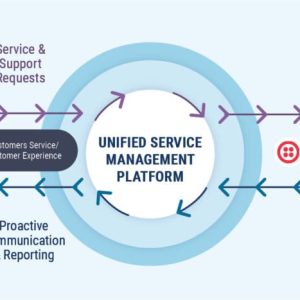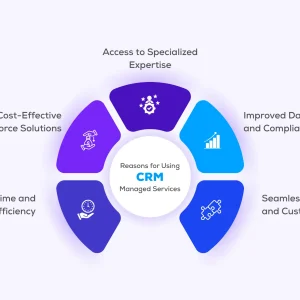This commendation is awarded to members of the U.S. Armed Forces who, while serving in a position of significant responsibility, render superior meritorious service. The acts or services must be outstanding and have clearly set the individual apart from others performing similar duties. It is a testament to exceptional performance that contributes substantially to the activities of a major command, agency, or other activity.
The award recognizes contributions beyond the normal expectations of duty. Recipients have often demonstrated initiative, leadership, and a commitment to excellence, resulting in significant improvements in operational efficiency, mission accomplishment, or resource management. Established in 1976, it acknowledges the increasingly joint nature of military operations and the importance of collaborative efforts across different branches of the armed forces.
Further details regarding the criteria, eligibility, and approval process for this esteemed recognition are discussed in the following sections. Specific examples of qualifying service and the impact of this recognition on career advancement will also be examined.
1. Meritorious Service
Meritorious service constitutes a foundational prerequisite for consideration for the Defense Superior Service Medal. The award explicitly recognizes contributions of an outstanding and exceptional nature. Without demonstrably meritorious actions, a service member is ineligible for this distinction. The degree to which the service exceeds the normal expectations for the position is a primary determinant in the awarding decision. This implies sustained superior performance or a singular act of extraordinary impact.
Consider, for example, a situation where a cybersecurity expert, while assigned to a joint task force, identifies a critical vulnerability in a network protocol used by multiple defense agencies. The timely identification and mitigation of this vulnerability, preventing a potentially catastrophic breach of sensitive data, would constitute meritorious service warranting consideration. The impact of the action extends beyond routine duties and yields a substantial benefit to national security.
Suggested read: Chain Link Services: Everything You Need to Know About Professional Chain Link Fencing Solutions
In summary, the relationship is causal: meritorious service is a necessary condition for receiving the Defense Superior Service Medal. The practical significance lies in understanding that the award is not merely for competent performance, but for demonstrably superior contributions that significantly advance the objectives of the Department of Defense.
2. Joint Environment
The “joint environment” holds significant importance in the context of the Defense Superior Service Medal. This award often recognizes service members whose exceptional contributions directly enhance inter-service cooperation, interoperability, or effectiveness. The medal underscores the increasing reliance on integrated operations across different branches of the U.S. Armed Forces. Consider the implications of neglecting this crucial element: a military strategy designed in isolation, without consideration for the capabilities and limitations of other service branches, would be inherently flawed and less likely to achieve desired outcomes. The medal, therefore, incentivizes and acknowledges contributions that foster synergy and mutual support.
A real-world example can be found in the establishment of a joint task force to combat terrorism. A communications officer who develops a secure, cross-platform communication system, enabling seamless information sharing between Army, Navy, Air Force, and Marine Corps units, would be operating within a joint environment. This innovation, by improving coordination and situational awareness, could be deemed a significant contribution meriting consideration for the award. The key is that the impact extends beyond a single service and enhances the collective effectiveness of the joint operation. Furthermore, developing standardized operating procedures for multinational exercises, promoting improved coordination and mutual understanding between allied forces, would also exemplify meritorious service within a joint environment.
In conclusion, the Defense Superior Service Medal often acknowledges achievements that strengthen the operational effectiveness of the U.S. military within a collaborative and interconnected framework. This understanding reinforces the importance of interoperability and cooperation in modern warfare and emphasizes that superior service often transcends individual service lines. Ignoring this aspect would neglect a core tenet of contemporary military strategy and potentially overlook deserving candidates whose contributions primarily benefit the joint force as a whole.
3. Significant Contribution
The concept of “Significant Contribution” forms a cornerstone in the evaluation process for awarding the Defense Superior Service Medal. This criterion dictates that the nominee’s actions must have had a demonstrably positive and substantial impact on the mission, objectives, or overall effectiveness of the Department of Defense.
-
Operational Impact
This facet emphasizes the direct influence of the contribution on military operations. For instance, a logistics officer who implements a streamlined supply chain that reduces delivery times by a measurable percentage, thereby enhancing operational readiness, has made a significant contribution. Similarly, a military intelligence analyst who identifies a critical vulnerability in enemy tactics, leading to the successful thwarting of an attack, would also demonstrate operational impact. The key element is the tangible improvement in the ability to conduct military operations effectively.
-
Technological Advancement
The development, implementation, or improvement of technologies that benefit the Department of Defense can constitute a significant contribution. Consider an engineer who designs a more efficient communication system that reduces bandwidth requirements while maintaining security. This advancement directly benefits deployed units by allowing them to transmit more data with less resources. Similarly, an individual who pioneers the use of artificial intelligence to improve threat detection capabilities contributes significantly to defense technology.
-
Resource Management
Effective management of resources, leading to cost savings or improved efficiency, is another avenue through which an individual can make a significant contribution. A contracting officer who negotiates a favorable deal with a vendor, saving the Department of Defense a substantial sum of money, has made a significant impact. Furthermore, a program manager who streamlines a project, delivering it under budget and ahead of schedule, demonstrates responsible resource management that benefits the organization.
-
Training and Development
Enhancing the training and development of military personnel can also constitute a significant contribution. An instructor who develops a more effective curriculum that improves the performance of trainees in a specific skill set has made a positive impact. Similarly, a mentor who guides junior officers, fostering their leadership abilities and professional development, contributes to the overall effectiveness of the military force.
In essence, the “Significant Contribution” criterion ensures that the Defense Superior Service Medal is awarded to individuals whose actions have made a measurable and lasting difference to the Department of Defense. These contributions, whether in the operational, technological, resource management, or training domains, demonstrate a commitment to excellence and a dedication to the mission of national defense.
Suggested read: Integrated Service Solutions: Transforming Business Operations Through Unified Management
4. Outstanding Achievement
Outstanding achievement serves as a pivotal criterion for the awarding of the Defense Superior Service Medal. It reflects a level of performance that distinctly surpasses standard expectations and directly contributes to the effectiveness and efficiency of the Department of Defense. This medal is not awarded for routine competence; rather, it recognizes actions or accomplishments that demonstrate initiative, expertise, and a consequential impact beyond the norm. The connection is causal: consistent and documented outstanding achievement is a prerequisite for consideration. Without clear evidence of exceeding expectations in a manner that benefits the organization, a candidate would not be deemed eligible.
Consider a scenario where a project manager successfully delivers a complex software upgrade for a critical defense system months ahead of schedule and significantly under budget. This achievement, characterized by exceptional planning, resource allocation, and problem-solving skills, represents outstanding achievement. Similarly, an intelligence analyst whose unique insights uncover a previously unknown terrorist network, preventing a planned attack, also demonstrates achievement far exceeding routine duties. The practical significance of understanding this lies in identifying and rewarding personnel who consistently strive for excellence and whose actions yield tangible benefits. The stringent requirements for demonstrating achievement ensure that the medal is reserved for those whose contributions are genuinely exceptional.
In summary, outstanding achievement forms an integral and non-negotiable component of the Defense Superior Service Medal criteria. It underscores the commitment to recognizing individuals whose performance significantly enhances the capabilities of the Department of Defense. By focusing on quantifiable results and demonstrable impact, the selection process ensures that the medal is awarded to those who have truly distinguished themselves through their dedication and expertise. This emphasis on tangible outcomes reinforces a culture of excellence and encourages service members to strive for superior performance in their respective fields.
5. High Responsibility
High responsibility constitutes a fundamental consideration in the awarding of the Defense Superior Service Medal. The medal recognizes meritorious service rendered while serving in a position of significant responsibility, indicating that the individual’s actions had a broad and consequential impact. The level of responsibility inherent in the nominee’s position is weighed heavily during the selection process.
-
Scope of Authority
This facet reflects the breadth of the individual’s decision-making power and control over resources. A senior officer commanding a large unit or a program manager overseeing a multi-million dollar project possesses a high degree of authority. For instance, a commander responsible for the security of a major military installation exercises significant authority, as their decisions directly impact the safety and well-being of numerous personnel and the protection of critical assets. The scope of authority demonstrates the potential for impact and the level of accountability borne by the individual.
-
Strategic Impact
This aspect focuses on the extent to which the individual’s actions influenced strategic objectives or long-term goals. A policy advisor who develops a new national security strategy or a military strategist who devises a novel operational plan would be considered to have a high strategic impact. For example, a logistical planner who revolutionizes supply chain management, enabling faster and more efficient deployment of troops and resources to critical areas, exerts a high level of strategic influence. The decisions made by individuals with high strategic impact have far-reaching consequences, affecting the overall posture and effectiveness of the armed forces.
-
Resource Stewardship
This element pertains to the responsible and effective management of resources, including personnel, finances, and equipment. An individual who oversees a complex budget, ensuring the efficient allocation of funds to various programs and initiatives, demonstrates resource stewardship. Consider a procurement officer who negotiates a favorable contract with a vendor, saving the Department of Defense millions of dollars. Such actions not only demonstrate fiscal responsibility but also free up resources that can be used to support other vital missions. The efficient and ethical use of resources is paramount to the success of any military organization.
-
Consequence of Decisions
This facet assesses the potential impact of the individual’s decisions on mission success, personnel safety, and national security. An intelligence officer whose analysis leads to the capture of a high-value target or the prevention of a terrorist attack bears a high degree of responsibility, as their decisions directly impact the safety of countless individuals. Similarly, a pilot whose split-second decisions in combat determine the outcome of a critical engagement carries a heavy burden of responsibility. When the decisions made by an individual have the potential to save lives, prevent significant damage, or alter the course of a conflict, their actions are considered to be of the highest responsibility.
These facets collectively highlight the crucial role high responsibility plays in the evaluation process for the Defense Superior Service Medal. The medal recognizes individuals who, while operating in positions of significant authority and impact, demonstrate exceptional leadership, expertise, and dedication to the mission. By acknowledging the importance of responsibility, the award incentivizes and rewards those who are entrusted with the most critical tasks and who consistently exceed expectations in their performance. The stringent requirements ensure that only those who have truly distinguished themselves through their contributions to national defense are honored with this esteemed recognition.
Suggested read: Salesforce Managed Services: Transform Your CRM Investment into Business Growth
Frequently Asked Questions
This section addresses common inquiries regarding the Defense Superior Service Medal, providing clear and concise answers based on established regulations and precedent.
Question 1: What specific criteria define “superior meritorious service” for the purpose of awarding the Defense Superior Service Medal?
Superior meritorious service necessitates performance significantly exceeding normal expectations. The impact must be demonstrably positive and substantial, contributing significantly to the mission or efficiency of the Department of Defense. Consistent performance exceeding expectations, rather than a single act, is often considered.
Question 2: Is the Defense Superior Service Medal automatically awarded to individuals upon assuming positions of high responsibility?
No. Holding a position of high responsibility is a prerequisite, not a guarantee. The medal is awarded based on performance and contributions while serving in that role. Nominations require documented evidence of exceptional service that distinguishes the individual from peers.
Question 3: Who is eligible to receive the Defense Superior Service Medal? Is it limited to officers?
Eligibility extends to all members of the U.S. Armed Forces, regardless of rank. Civilian employees of the Department of Defense are not eligible. The award is based on the nature of the service rendered, not the individual’s rank or branch of service.
Question 4: Can the Defense Superior Service Medal be awarded posthumously?
Yes. The award can be conferred posthumously if the individual’s actions meet the established criteria and the recommendation is appropriately submitted and approved following the service member’s death.
Suggested read: Professional Gutter Inspection Services: Protect Your Home from Water Damage in 2025
Question 5: What documentation is required to support a nomination for the Defense Superior Service Medal?
A comprehensive nomination package is required, including a detailed description of the nominee’s accomplishments, specific examples of their impact, and supporting documentation such as performance evaluations, commendations, and other relevant evidence. Witness statements and quantifiable metrics are beneficial.
Question 6: Is there a limit to the number of times an individual can receive the Defense Superior Service Medal?
There is no inherent limit. Subsequent awards are denoted by oak leaf clusters for members of the Army and Air Force, and stars for members of the Navy, Marine Corps, and Coast Guard.
The information presented clarifies key aspects of eligibility, criteria, and the nomination process associated with this prestigious military decoration.
The following sections will further explore the impact of this commendation on career progression and future opportunities.
Maximizing Opportunities for Nomination
The following guidance aims to provide insights into actions that may increase the likelihood of consideration for the Defense Superior Service Medal. Focus on demonstrating sustained, impactful performance and meticulous documentation.
Tip 1: Exceed Expectations Consistently. Routine competence is insufficient. Strive for continuous improvement and demonstrable contributions beyond the standard requirements of the assigned role. For example, proactively identify and resolve systemic inefficiencies that hinder operational effectiveness.
Tip 2: Seek Opportunities for Joint Service Collaboration. Actively participate in joint task forces, exercises, or initiatives that promote interoperability and enhance coordination between different branches of the armed forces. Document any innovations or improvements that result from such collaborations.
Tip 3: Quantify Achievements Whenever Possible. Whenever feasible, use measurable metrics to demonstrate the impact of actions. For example, quantify cost savings achieved through process improvements, reductions in response times due to technological advancements, or improvements in training effectiveness resulting from curriculum revisions.
Tip 4: Document Contributions Meticulously. Maintain a detailed record of accomplishments, including specific examples, supporting data, and testimonials from colleagues and supervisors. This documentation will serve as crucial evidence in the nomination process.
Tip 5: Seek Mentorship and Guidance. Consult with senior leaders or individuals who have previously received the Defense Superior Service Medal to gain insights into the nomination process and identify opportunities for impactful contributions.
Suggested read: How a Plumbing Answering Service Can Transform Your Business and Boost Revenue in 2026
Tip 6: Develop and Implement Innovative Solutions. Identify challenges or gaps in current operations and develop creative solutions to address them. Implement these solutions effectively and document the resulting improvements in efficiency, effectiveness, or resource utilization.
Tip 7: Enhance Training and Development Programs. Contribute to the improvement of training programs by developing new curricula, implementing innovative teaching methods, or providing mentorship to junior personnel. Track the performance of trainees to demonstrate the effectiveness of these efforts.
By consistently exceeding expectations, actively seeking opportunities for collaboration, meticulously documenting accomplishments, and strategically seeking guidance, individuals can significantly enhance their prospects for consideration. This dedication to excellence not only increases the likelihood of recognition but also contributes to the overall effectiveness of the Department of Defense.
The subsequent section will conclude this exploration of the “defense superior service medal” and its significance.
Conclusion
This exploration has provided a comprehensive overview of the Defense Superior Service Medal, encompassing its criteria, eligibility, significance, and pathways to nomination. The medal represents a high level of professional achievement and recognizes contributions that significantly enhance the operational effectiveness of the U.S. Armed Forces. Consistent meritorious service within a joint environment, coupled with demonstrable and quantifiable results, is paramount for consideration.
The pursuit of excellence and the commitment to exceeding expectations remain fundamental to advancing the objectives of national defense. Understanding the criteria and processes associated with the Defense Superior Service Medal serves as a catalyst for sustained superior performance and reinforces the importance of dedicated service to the nation. Continued adherence to these principles will ensure the Department of Defense remains a highly capable and effective force.





